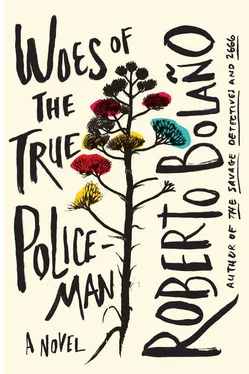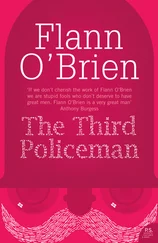At first both of them were busy at their respective jobs, and in a way, especially for Antoni, Amalfitano’s departure was simply a relief, but after a few months, in the middle of an especially boring after-dinner hour, the two of them began to miss him. Gradually they realized that Amalfitano and his crazy stories were like the image of their own lost youth. They saw him as they saw themselves: young, poor, determined, brave, generous, invested in a perhaps ridiculous and feeble way with pride and nobility. By so often associating Amalfitano with defunct images of themselves, they ultimately stopped thinking about him. Only every so often, when a letter came from Rosa, were they reminded of the wandering queer, and then they would laugh, happy all of a sudden, remembering him with fleeting but sincere affection.
How Was Jordi Carrera Affected by the Departure of Rosa Amalfitano?
It was much harder for him than for his parents. Until Rosa left, it was as if Jordi lived at the North Pole. He and his friends and a few people who weren’t his friends and others he didn’t even know but saw in teen magazines, all lived in harmony — if not happily, since happiness was a sham — at the North Pole. They played basketball there, learned English, developed computer skills, bought lumberjack clothes, and assiduously attended movies and concerts. His parents often remarked to each other how inexpressive Jordi was, but this lack of expressiveness was his true self. Rosa’s absence changed everything. From one day to the next, Jordi found himself sailing at full speed over a vast sheet of ice to warmer seas. The North Pole receded in the distance and faded in significance and his ice sheet kept shrinking. He soon began to suffer from insomnia and nightmares.
How Was Padilla Affected by Amalfitano’s Departure?
Hardly at all. Padilla lived in a constant state of amorous self-expression and his feelings were extravagant but didn’t last for more than a day. In his own way, Padilla was a scientist who left no room for God in his laboratory. He agreed with Burroughs that love is nothing but a mixture of sentimentalism and sex and he found it everywhere, which meant that he was unable to mourn a lost love for more than twenty-four hours. Inside, he was strong and he accepted the shifts and fluctuations of the romantic object with a stoicism that, unlikely as it seemed, he shared with his father. Once, the poet Pere Girau asked how in the world, after a person had loved and fucked a Greek god, he could love and fuck people of inferior looks — ugly queers, if you can believe it, and the usual horrible rent boys. Padilla’s answer was that we loved beautiful people for the sake of convenience, that it was like a preference for known quantities, that the inner self was all that mattered, and that he could find beauty even in the shuffle of a donkey. And he wasn’t the only one. For example, he said, take the Apollonian poets of nineteenth-century France who sated themselves with stub-dicked boys from the Maghreb, youths who in no way fit the strict definition of classical beauty. Stub-dicked boys? said the poet Pere Girau incredulously, but I’m Apollonian, too, aren’t I, and I’d like to find someone to love who’s at least as good-looking as the son of a bitch who left me. Girau, said Padilla, I love people and my insides are bursting, and all you love is poetry.
And Finally, How Was the Poet Pere Girau Affected by the Departure of Amalfitano?
Not at all, though occasionally he remembered how much Amalfitano knew about Elizabethan verse, how well acquainted he was with the work of Marcel Schwob, how pleasant and agreeable he was when they talked about contemporary Italian poetry (Girau had translated twenty-five poems by Dino Campana into Catalan), what a good listener he was, and how sharp his opinions usually were. In bed it was a different story, he was a late-blooming queer and he neglected the practical, neglected it badly. Though in the end, thought the poet Pere Girau bitterly, he’s more practical than we are, because he’ll always be a literature professor, which means he’ll be protected financially at least, while we’re plunged into the vulgar and savage fin de siècle.
During the flight each of them realized that the other was afraid, though not very, and each of them understood with a sense of fatalism that all they had was each other: Planet Amalfitano began with Óscar and ended with Rosa and there was nothing in between. Or maybe there was: a succession of countries, a whirl of cities and streets that brightened and darkened arbitrarily in memory, the ghost of Edith Lieberman in Brazil, an imaginary country called Chile that drove Amalfitano mad — although every so often he tried to find out what was going on there — and that Rosa, born in Argentina, couldn’t care less about. If their plane went down in flames over the Atlantic, if their plane exploded, if their plane disappeared in the boundless space of the Amalfitanos, no memory of them would be left in the world, thought Amalfitano sadly. And he thought: we are two gypsies without a tribe, reviled, used, exploited, with no real friends, a clown and his poor defenseless daughter. Which led him to think: if instead of both of us dying in a plane accident only I die, of a heart attack or stomach cancer or in some gay brawl (the possibilities made Amalfitano sweat), what will happen to my angel, my darling, my wonderful, clever girl? and the carpet of clouds he could see if he craned his neck a little (he was in an aisle seat) opened up like the door to a nightmare, like an immaculate wound, Israel, he thought, Israel, let her head to the first Israeli embassy she can find and request citizenship, her mother was Jewish, so it’s her right, let her live in Tel Aviv and study at Tel Aviv University, where she’ll probably run into Skinny Bolzman (how many years has it been since I saw him? twenty?), let her marry an Israeli and live happily ever after, ah, he thought, if only it could be Sweden I would breathe easier, but Israel isn’t bad, Israel is acceptable. And he thought: if neither of us dies but things go badly in Santa Teresa, if I lose my job and can’t find another one, if I can only give private French lessons and we have to live in a seedy boardinghouse, if we start to shrivel up and succumb to our basest instincts in the middle of nowhere with no money to leave and no place to go, if we’re smothered and numbed in a time that moves with endless slowness, without hope or prospects, if I end up like that Spanish widow I met in a café in Colón, the perfect victim, that mental Justine who worried every day that the Panamanians (the black ones, those big, athletic black men) would rape her delectable fifteen-year-old daughter, and she would be helpless, a woman with no husband and no money running a tiny café that made no profit, with no hope of returning to Spain, trapped in a Buñuel film from the ’50s, what will I do then? thought Amalfitano, bewildered, trying to block stray images of Padilla and desolate, schematic New World landscapes in which he was the only cat among packs of hounds, a hoopoe among eagles and peacocks.
A month after they were settled in Santa Teresa one of the secretaries from the rector’s office gave Amalfitano a letter from Padilla that was addressed to the university. In the letter Padilla talked about the weather in Barcelona, about how much he was drinking, about his new lover — another one — a twenty-eight-year-old SEAT auto worker, married with three children. He said that he had left the university (it wasn’t the same without you) and that at last he had work, he was a proofreader at a publishing house, a friend got him the job, it was a little boring but secure and the pay wasn’t bad, though a few lines later he said that in fact the pay was bad but he could get by. He also said that he had left the studio and that the painter who was sometimes there, the one with the gold cigarette case full of little hash cigarettes, had recently killed himself in New York. Life, according to Padilla, despite the crushing boredom of proofreading novels faker than a three-thousand-peseta note, continued to be strange and full of mysterious offerings. Finally, he reported that he had begun to write his first novel. About the plot, however, he divulged nothing.
Читать дальше








![О Генри - Бляха полицейского О’Руна [The Badge of Policeman O'Roon]](/books/405347/o-genri-blyaha-policejskogo-o-runa-the-badge-of-po-thumb.webp)



